They had traveled from Europe, Asia and Africa, enduring hardships along their journey. Nervously they stood in single file, waiting to be cleared to begin a new life in a new country. But before they could enter America, hopeful settlers had to clear a medical inspection at Ellis Island, the gateway for more than 12 million immigrants to the United States from 1892 until 1954.
What set this group of individuals apart is that they are today’s seventh-grade students at Landstown Middle School, reenacting an important period in our nation’s history.
“We are doing an authentic simulation because we want the kids to really feel empathy for those who came through Ellis Island,” said Diane Tarkenton, Landstown Middle School gifted resource teacher. “This is important because we have all originated from this and it’s important that they understand that.”
Tarkenton portrayed an inspecting physician who could deny entry to any immigrant, sending the person back to their originating country.
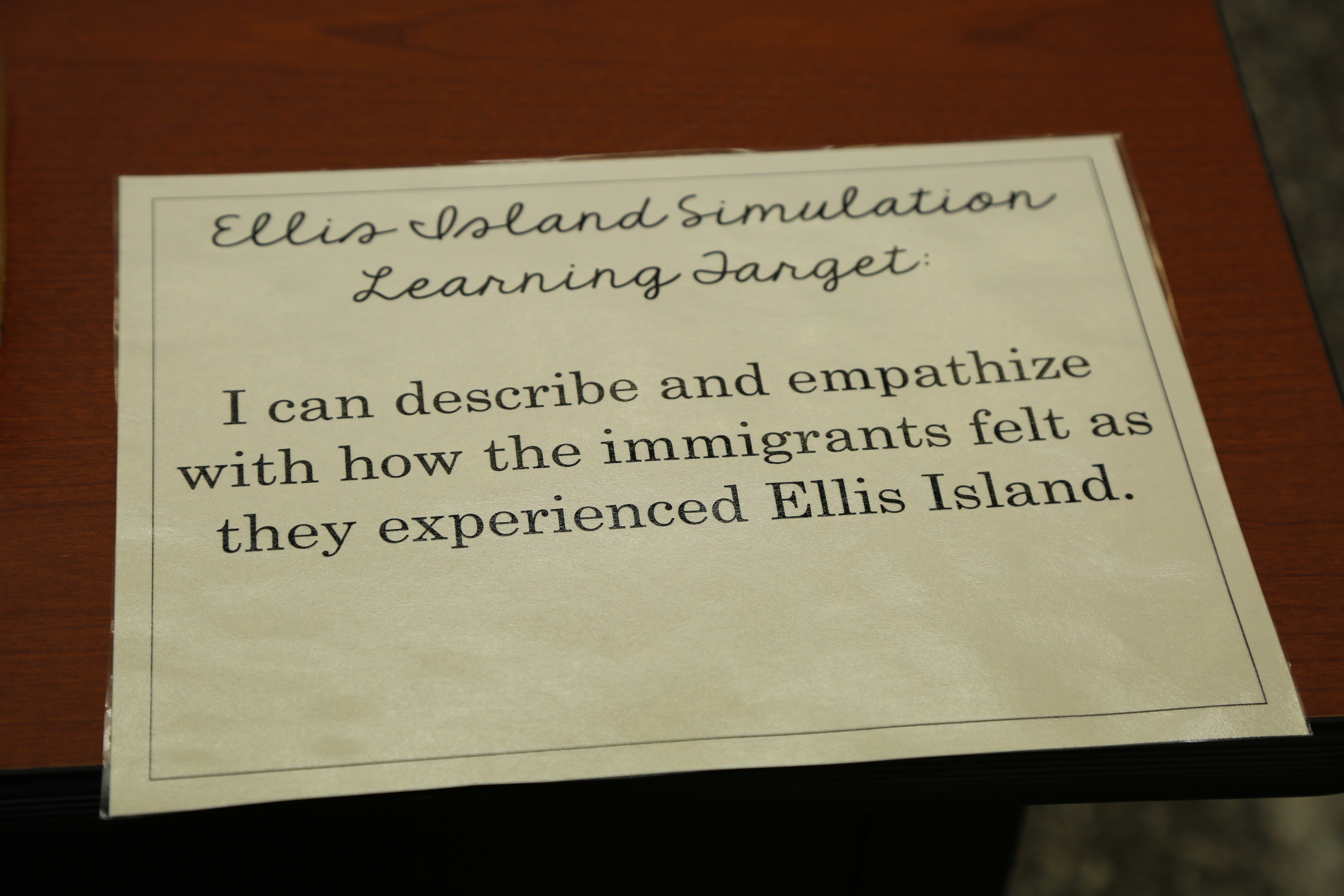
Fiona Bailey took on the role of a 16-year-old trying to emigrate from Ireland.
“I am hoping to be able to enter the country. If I get through Ellis Island, I will go to Huntsville, Alabama. I have family there.”
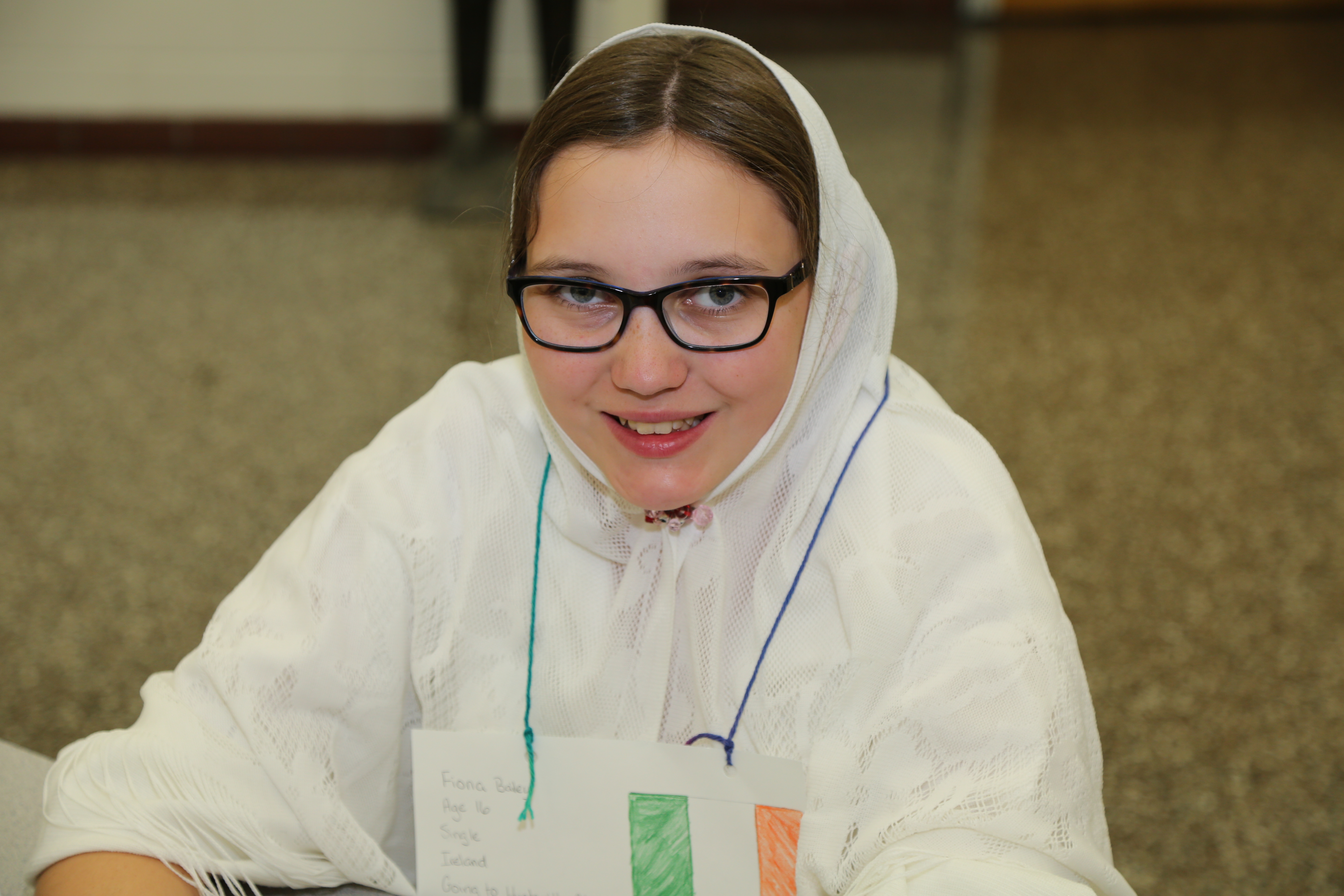
Getting through the medical inspection at Ellis Island was not guaranteed. The medical inspection at Ellis Island began soon after the immigrants walked onto the island. After disembarking from the ferry that transported them from the steamships, they were told to carry their bags into the main building and up a long flight of steps. Those who had to stop in the middle of this path, clutching their chests in pain or resting because they were short of breath, were pulled aside to be inspected for evidence of chronic heart disease, such as atherosclerosis or damage from a long-ago bout of rheumatic fever, or lung problems.
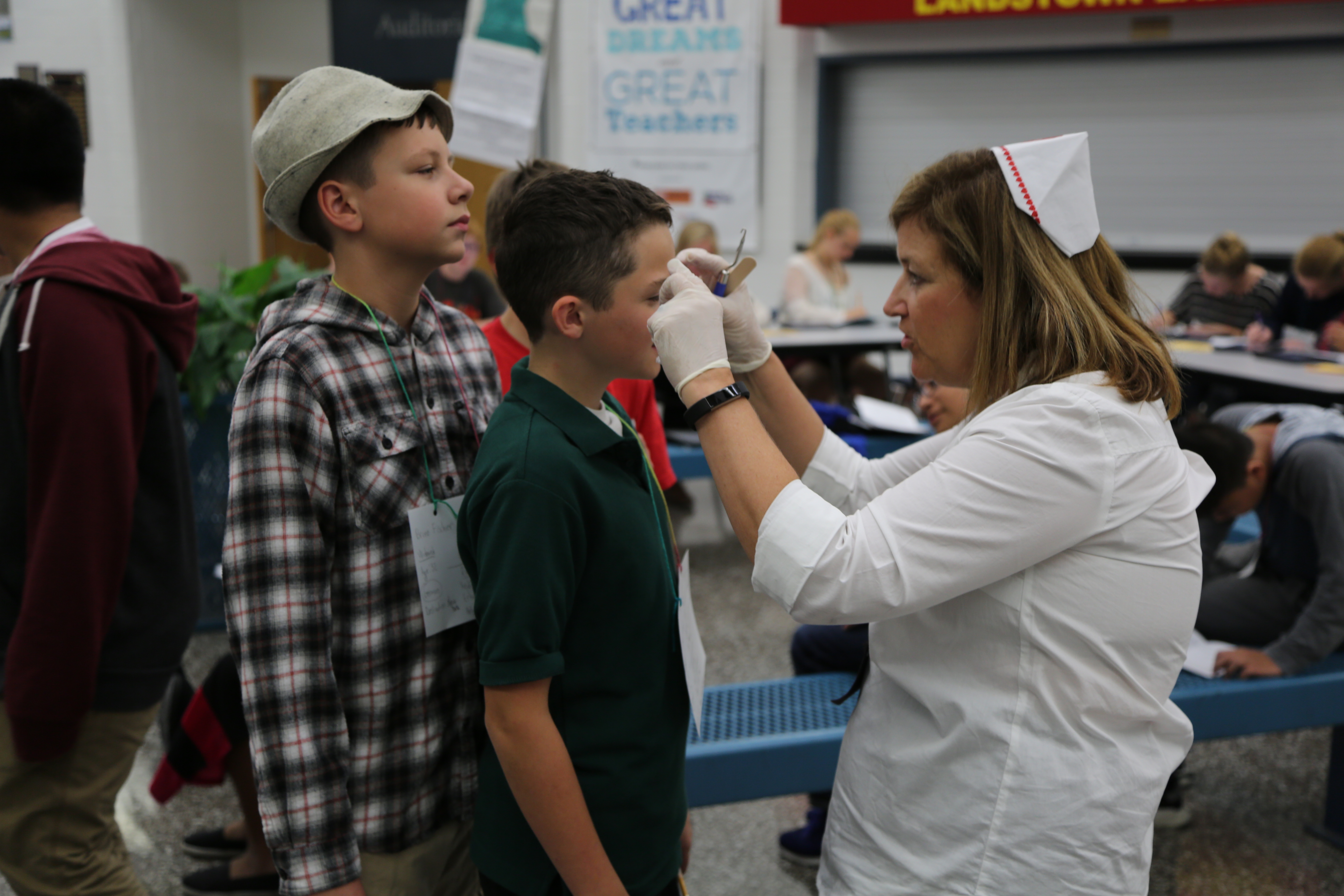
When Ellis Island opened its doors in 1892, there were six physicians stationed to inspect the more than 200,000 immigrants who passed through the doors. The medical inspections lasted six seconds per person.
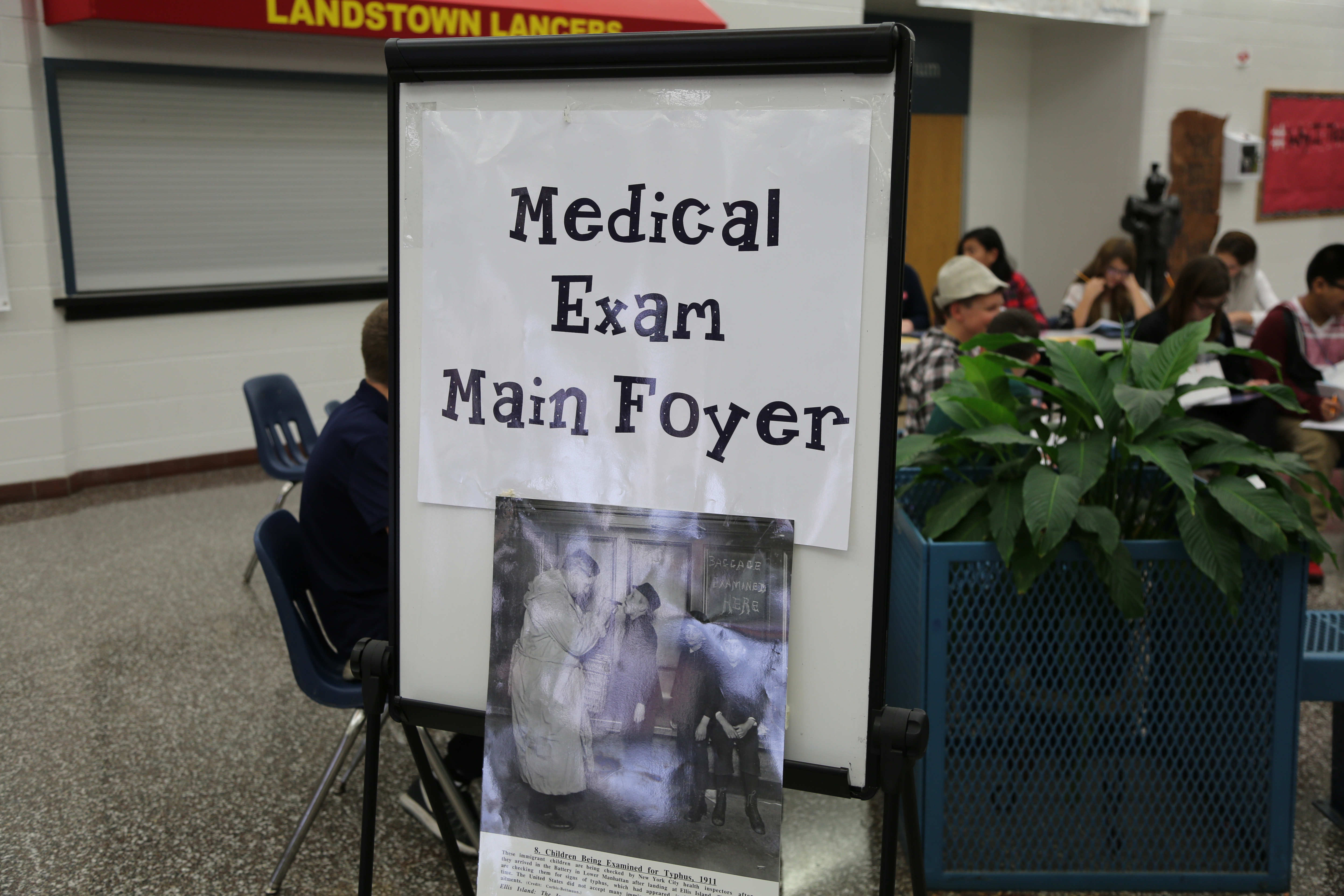
Tarkenton explained that the students shared some of the same worries of ancestors from more than a century ago. “This station, in particular, scares them when they come through. They don’t think it is fair that a six second exam could exclude some people from coming to our country.”
Students rotated through the mock Baggage Room, Registry Room, the Legal Inspection and then the Medical Inspection. But they understood that a U.S. Public Health Service Doctor had the potential to change their lives for the better or worse.
Taevies was assigned the role of Mario, who is coming to America to from Italy. “I’m hoping to be accepted. If not, I guess I will return to Italy. I am trying to get away from the troubles in my country. But, if I have to go back, it’s life, you can win or lose.”

“Some stayed in hospital for observation,” explained Tarkenton. “Some were sent right back even if they had parents, siblings, whatever, they just sent them back. It was cut and dry and it just tore families apart.”
The last examination was the most feared; the doctor’s inspection of the eyelids and eyes for evidence of trachoma. A chronic infection of the eye, trachoma is now easily treated with an antibiotic. In the days of Ellis Island, however, three out of four victims were left blind. Tarkenton even had a buttonhook, used by Ellis Island doctors to evert a patient’s eyelids.
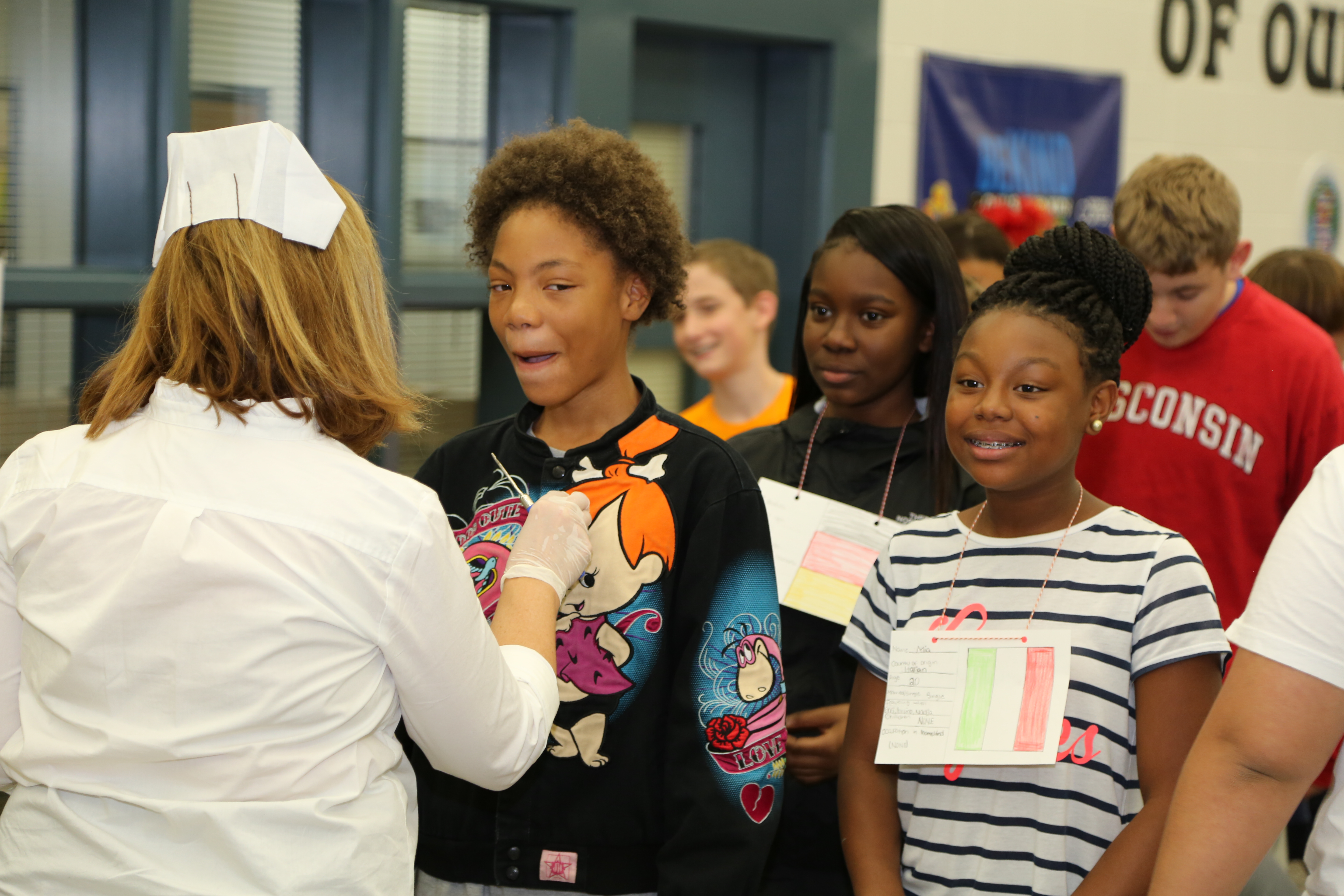
“That thing the doctor had scared me,” said Taevies.
Tarkenton said that student reaction to the simulation was genuine. “It is wonderful, it is absolutely chaos when we end, but I truly believe that they truly experience that feeling. They are engaged, they are learning, and they are excited and they will never forget this experience.”
After this lesson, how did Bailey feel that her ancestors were treated? “Oh, not so well, I think. But this shows us what they had to go through to come here and what they went through.”
At the end of the exercise, Neil Diamond’s “Coming to America” played in the background as students gathered in the auditorium to find out who would be granted entry to this new free land and who would be turned away due to the medical inspection. Taevies discovered that Mario would not be allowed to enter the United States due to the diagnosis of trachoma. As he stood at the island’s infamous Stairs of Separation, he shared his disappointment.
“All I wanted to do was make a new life for myself.”
A female student standing next to him tried to reassure him. “That’s OK, I still like you.”
